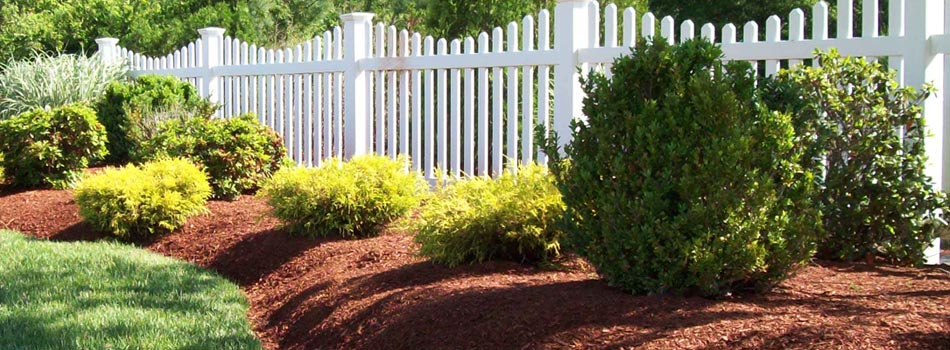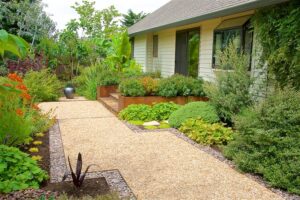Click to call us: 857-504-5117
contact@greenpulselandscaping.com
Click to call us: 857-504-5117
contact@greenpulselandscaping.com


Creating a sustainable garden in Massachusetts not only benefits the environment but also enhances the beauty and resilience of your landscape. Eco-friendly landscaping practices help conserve resources, support local wildlife, and reduce maintenance efforts. This guide provides essential tips for creating a sustainable garden in Massachusetts.
1. Choose Native Plants Native plants are adapted to the local climate and soil conditions, making them more resilient and less resource-intensive. Some great native plants for Massachusetts include Eastern Red Columbine, New England Aster, and Sweet Fern. These plants require less water, fertilizer, and pesticides, promoting a healthier garden ecosystem.
2. Water Wisely Water conservation is a key aspect of sustainable gardening. Implementing efficient watering practices ensures your garden thrives while conserving water. Use drip irrigation systems or soaker hoses to deliver water directly to the roots, reducing evaporation. Water early in the morning or late in the evening to minimize water loss. Collect rainwater in barrels to use during dry periods.
3. Improve Soil Health Healthy soil is the foundation of a sustainable garden. Enhance soil health by adding organic matter such as compost or aged manure. This improves soil structure, increases water retention, and provides essential nutrients to plants. Avoid using chemical fertilizers, which can harm beneficial soil organisms.
4. Mulch Your Garden Mulching helps retain moisture, suppress weeds, and regulate soil temperature. Use organic mulches like shredded bark, straw, or compost. Mulch also improves soil health as it breaks down, adding organic matter to the soil. Apply a 2-3 inch layer around your plants, ensuring not to cover the stems.
5. Reduce Lawn Area Lawns require significant water, fertilizers, and mowing. Reduce the size of your lawn by replacing portions with native plants, groundcovers, or wildflower meadows. These alternatives are low-maintenance and provide habitat for pollinators and other wildlife.
6. Practice Integrated Pest Management (IPM) IPM is an eco-friendly approach to pest control that minimizes the use of chemicals. It involves monitoring pest levels, using biological controls like beneficial insects, and applying organic pesticides only when necessary. Encouraging natural predators and maintaining plant health reduces the likelihood of severe pest problems.
7. Create Wildlife Habitats A sustainable garden supports local wildlife by providing food, water, shelter, and nesting sites. Plant a variety of native species to attract birds, butterflies, and beneficial insects. Install bird feeders, birdbaths, and bat houses. Leave some areas of your garden a bit wild to provide undisturbed habitat.

8. Use Permeable Surfaces Replace impervious surfaces like concrete with permeable materials such as gravel, pavers, or wood chips. Permeable surfaces allow rainwater to infiltrate the soil, reducing runoff and erosion. This practice also helps recharge groundwater supplies.
9. Composting Composting garden and kitchen waste reduces landfill use and creates nutrient-rich soil amendment. Set up a compost bin in your garden for leaves, grass clippings, vegetable scraps, and other organic materials. Use the finished compost to enrich your soil and promote healthy plant growth.
10. Reduce, Reuse, Recycle Incorporate recycled and repurposed materials into your garden design. Use reclaimed wood for garden beds, repurpose old containers for planters, and create pathways with recycled materials. This reduces waste and gives a unique character to your garden.
11. Practice Organic Gardening Avoid synthetic chemicals in your garden. Use organic fertilizers, pesticides, and herbicides to protect soil health and reduce pollution. Companion planting and crop rotation are organic techniques that help manage pests and improve soil fertility.
12. Plant Trees and Shrubs Trees and shrubs provide shade, reduce energy costs, and create habitat for wildlife. Planting native trees and shrubs helps restore local ecosystems. In Massachusetts, consider species like Sugar Maple, Eastern Red Cedar, and Highbush Blueberry.
13. Educate Yourself and Your Community Stay informed about sustainable gardening practices and share your knowledge with others. Join local gardening clubs, attend workshops, and participate in community gardening projects. Educating your community helps promote widespread adoption of eco-friendly landscaping practices.
Conclusion Creating a sustainable garden in Massachusetts is a rewarding endeavor that benefits both your landscape and the environment. By following these eco-friendly landscaping tips, you can enjoy a beautiful, resilient garden while conserving resources and supporting local wildlife. For professional assistance and personalized sustainable gardening solutions, contact us at Green Pulse Landscaping.